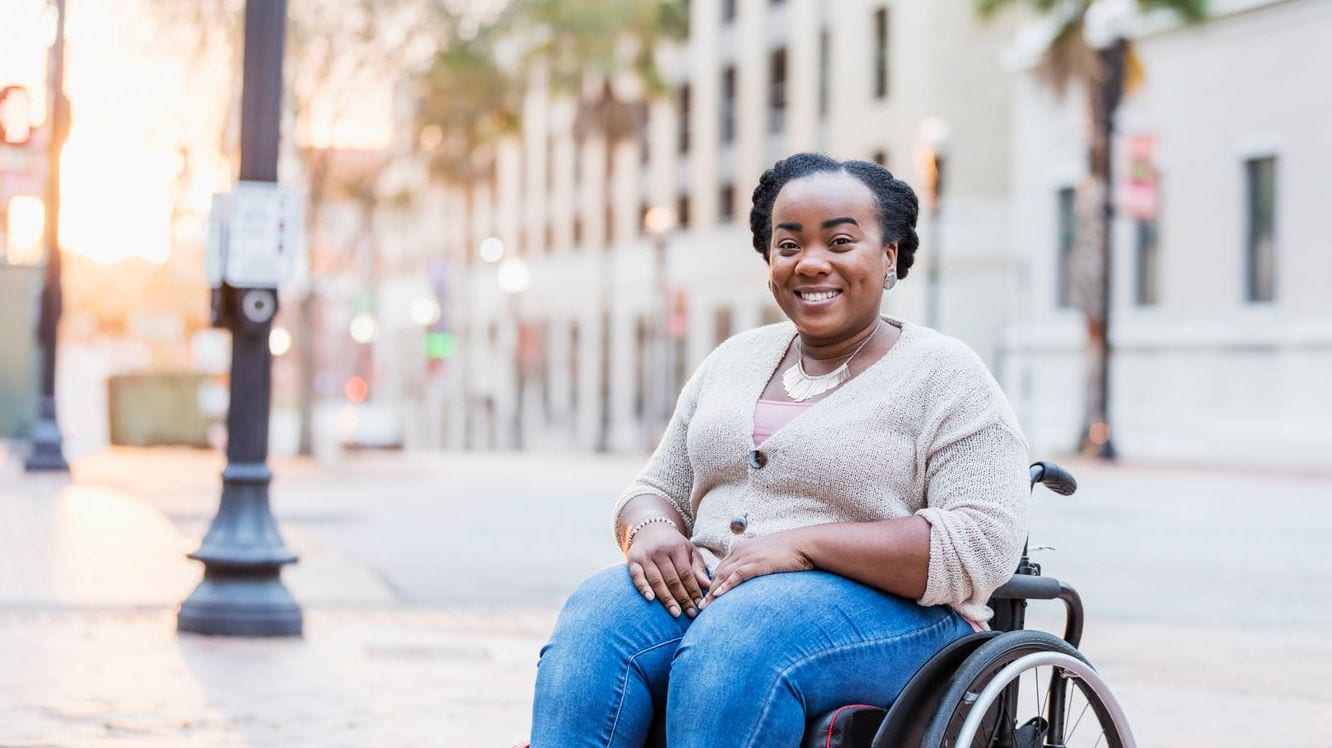What to know
- About half of all people living with spina bifida in the United States are adults.
- Young adults with spina bifida may have complex needs that can be supported through coordinated care from a multidisciplinary team of healthcare professionals.

Supporting independence
The transition from adolescence to adulthood can be a time of growth and success, as well as difficulty. Young adults affected by spina bifida can face challenges, such as:
- Learning to take care of their own health needs.
- Working.
- Going to school.
- Volunteering.
- Finding and using transportation.
- Living outside their parents' home.
- Developing healthy relationships.
Many young adults are still getting used to being independent. They may have recently started working, volunteering, going to college, or living independently.
Continuing to plan for the future is very important. This includes setting goals and planning how to achieve them. Unexpected problems can be challenging and it's important for young adults to not give up and to keep working towards their goals. Sometimes the goals need to be modified, or they take longer than planned. Either way, planning now will help young adults with spina bifida continue to succeed.
Health effects
Physical health
Young adults with spina bifida can provide or manage much of their own care. Some examples include:
- Finding new doctors that care for adults affected by spina bifida.
- Obtaining medical insurance.
- Talking to health care professionals about their condition.
- Making doctor appointments.
- Ordering or reordering medications and supplies.
- Seeking immediate medical help when needed.
- Managing their own bathroom plan.
Sexual health
Spina bifida causes nerve damage that can affect sexual functioning. Most people with spina bifida are fertile, and can have children.
Mental health
Overall mental health and well-being are very important for everyone. Mental health is how people think, feel, and act as they cope with life. To be at their best, people need to feel good about their lives and value themselves.
Young adults with spina bifida might feel isolated from others or have low self-esteem. This can cause them to become depressed. There are different ways to treat depression. Exercise can be effective. Counseling or medication also might be needed. Participating in peer support groups can also help.
Guidelines
Physical activity
Regular physical activity is important for all people, but especially for those with conditions that affect movement, such as spina bifida. CDC recommends 60 minutes of physical activity a day. There are many ways for people with spina bifida to be active. For example, they can:
- Roll or walk in the neighborhood.
- Lift weights.
- Participate in sports activities or teams.
For more information, please visit the following website:
Sexual health
It is important that young adults with spina bifida talk with their healthcare professional about sexuality and sexual functioning, contraceptives, and reproductive concerns.
Folic acid
Folic acid is very important. Taking enough folic acid before and during pregnancy can help prevent major birth defects of the brain and spine―including spina bifida. If planning to get pregnant, a person with spina bifida should consider getting a prescription for 4,000 micrograms (mcg) of folic acid. This should be taken one month before pregnancy and during early pregnancy.
For more information, please visit these webpages from the Spina Bifida Association:
Mental health
Everyone feels worried, anxious, sad or stressed sometimes. If these feelings do not go away or interfere with daily life, adults should talk with other people about their feelings. This can include a family member or health care professional.
If you have questions about mental health or getting mental health services, speak with your doctor or licensed mental health professional. They may be able to answer those questions or refer you to someone who can. A nearby health facility or your state mental health agency also may be able to help.
What you can do
Getting around
To be independent, young adults need to be able to find and use transportation safely. Many young adults with spina bifida have issues that can affect safe driving. A driver rehabilitation evaluation specialist can identify whether modifications to the car would make it more accessible.
Young adults can also learn to find and safely use buses, cabs, and ride-hailing services. As they plan for employment, college, or vocational training, young adults will need to find and use transportation safely.
